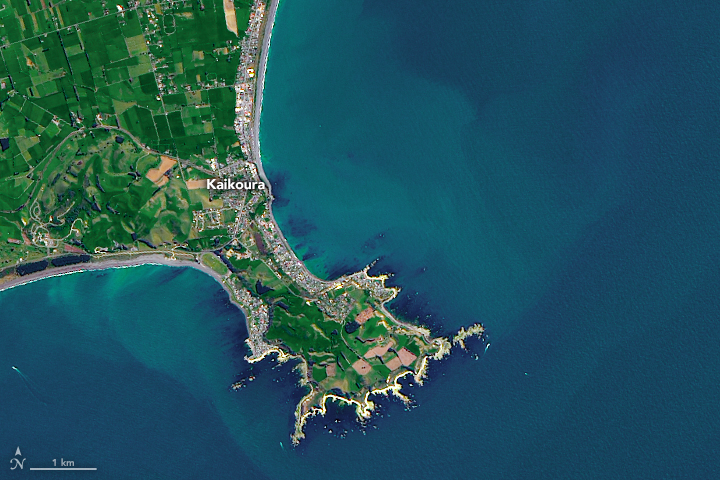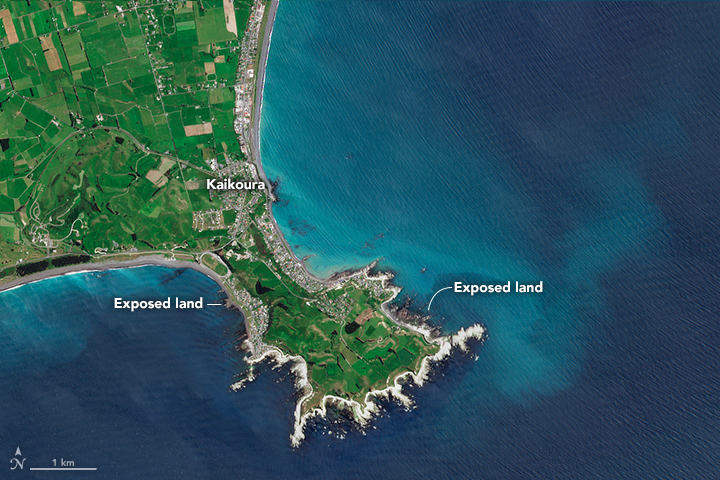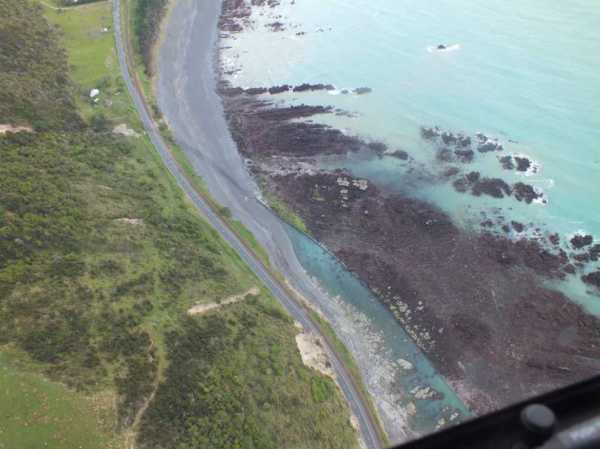NASA has released before and after images showing the coastline of Kaikoura after the powerful earthquake that recently struck the northeastern coast of New Zealand’s South Island, lifting the seabed by 6 ft (2 meters). The images captured by satellite show newly exposed land near the town of Kaikoura.
In just two minutes, movement along the fault caused a seabed near Kaikoura to raise 6 feet into the air, creating new coastline and exposed seabed. The movement was mainly horizontal, but several vertical movements occur, which can be easily seen in uplifted seabed.
Dr. Joshu Mountjoy, a marine geologist at the National Institute of Water and Atmospheric Research (NIWA), said the modern New Zealand scientists have never seen anything like that. “But this happens periodically in our young land. We get used to the situation as it is, and then this happens, it will take a while before this becomes normal again”, he explained.
The Kaikoura earthquake was a magnitude 7.8 and it occurred two minutes after midnight on Nov 14. The earthquake ruptured on multiple fault lines in a complex sequence that lasted for more than one minute. Two deaths were reported and many major roads were closed in the South Island because of slips and damage to bridges. Many landslides occur, under the combined effect of the ongoing aftershocks and the effects of very heavy rains. Landslides emerged not only in the coastal region but also in the Kaikoura Hills, blocking the roads and leaving Kaikoura cut off. The large magnitude of the quake makes it one of the world’s three largest earthquakes in 2016.
The large magnitude of the quake makes it one of the world’s three largest earthquakes in 2016.








